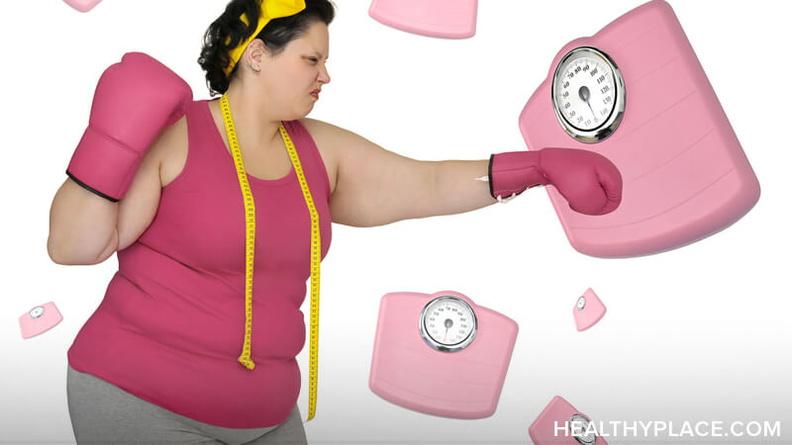The Perfect Body Image and Self-Esteem

Most young people at one time or another, have lost self-esteem over the perfect body image. It's easy to see why, when the people they look up to in the media are portrayed as flawless, thin, tanned women on the covers of magazines, and pictures of tall, muscled men. It can be hard for those struggling with society's perfect body image and their own weight issues and can contribute to many mental health issues.
How the Perfect Body Image Affects Young People
In the 1940s and '50s, when it was fashionable to look voluptuous and curvy, women didn't feel they needed to look thin to be attractive. However, society has now changed, and many young people (females and males) now feel they need to measure up to the thin, toned, perfect bodies they see in the media -- and it's just not possible.
Because there is this obsession with the perfect body image, there is more body-shaming than ever. People with serious weight issues can suffer immensely with low self-esteem, depression, feelings of inadequacy, social anxiety, panic attacks and more.
There is a stigma about people who are carrying more weight that they are lazy and should just stop eating so much -- it's not as easy as it sounds. It's often the abuse they receive that can cause them to feel so low about themselves, develop a mental health issue and find comfort in food. This, then, is a vicious cycle as they continue to put on weight and feel worse about themselves.
Battle the Perfect Body Image with Self-Acceptance and Improving Self-Esteem
 Since I was a teenager, I have been on so many diets I can't even attempt to count them. It is shocking to look back on photos where I once saw myself as large, to now wishing I was that weight again. When I get down to a weight I am happy with, I feel confident (which is positive); however, it's giving in to the idea that I need to be thin to be beautiful. There is still too much emphasis on the physical, instead of what really matters -- how you are inside and how you treat others.
Since I was a teenager, I have been on so many diets I can't even attempt to count them. It is shocking to look back on photos where I once saw myself as large, to now wishing I was that weight again. When I get down to a weight I am happy with, I feel confident (which is positive); however, it's giving in to the idea that I need to be thin to be beautiful. There is still too much emphasis on the physical, instead of what really matters -- how you are inside and how you treat others.
Our mental health improves when we take action to feel better about ourselves. Maybe, instead of focusing on how we look, we should exercise to increase endorphins and feel excited about being fit and healthy and not take for granted our healthy and able bodies, which a lot of people don't have.
Maybe, instead of wishing you were a size thinner, you could embrace the curves you have, and create your own beautiful. Maybe, instead of hating yourself for the way you love food, you could do something nice for someone and focus on how kind and caring you are -- not how weak you are.
The Struggle of Weight Vs. the Perfect Body Image
In this video, I talk about the struggle of the perfect body image and mental health and how we should be more understanding to those struggling with their own weight battles.
APA Reference
Virag, K.
(2016, March 4). The Perfect Body Image and Self-Esteem, HealthyPlace. Retrieved
on 2026, January 11 from https://www.healthyplace.com/blogs/mentalhealthforthedigitalgeneration/2016/03/the-struggle-of-the-perfect-body-image
Author: Kristen Virag
You keep referring to YOUNG women...
The fact is many OLDER women struggle with the same issue of looking good by striving/struggling to be thin, ie with emotional eating, daily adult stressors, an over critical spouse's/boyfriend's disparaging remarks about his wife's/girlfriend's weight, or perhaps just an insecure woman looking for a new beau after a bitter divorce, menopausal weight gain, weight gain after having had a baby etc.
Thank you for your comment. The reason I only discuss young people in this piece is because this blog is geared towards young people hence the title "Mental Health for the Digital Generation". I am aware older women struggle with similar issues.